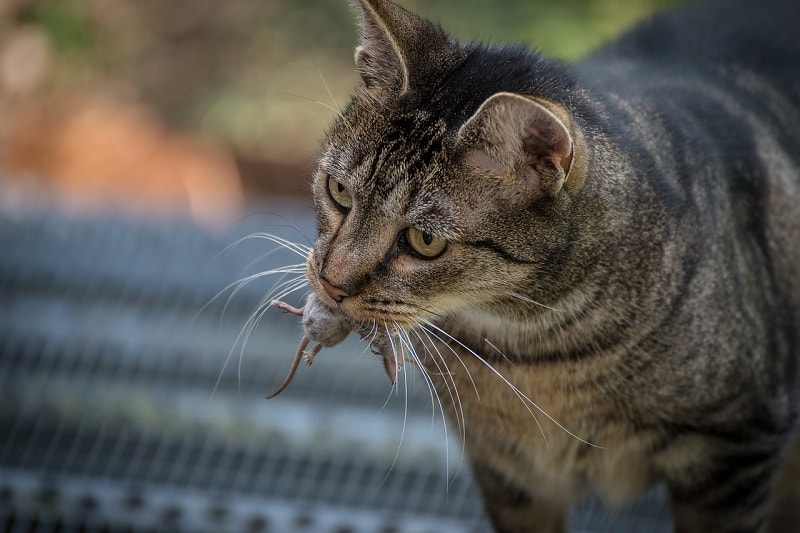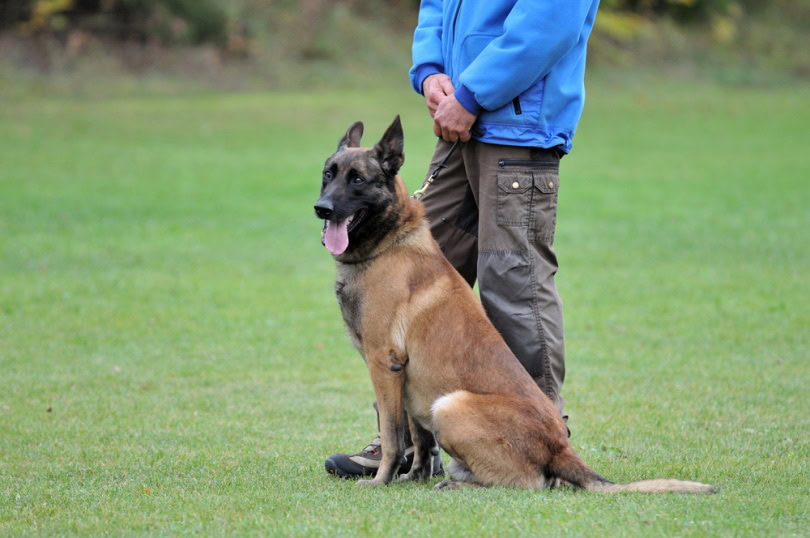VET APPROVED

The information is current and up-to-date in accordance with the latest veterinarian research.
Learn more »Click to Skip Ahead
Cats are natural predators. In the wild, they would hunt small rodents and birds. They would watch, stalk, jump, and kill their prey. While you might provide your cat with two square meals a day, regular treats, and plenty of time and attention with a fake bird on a piece of elastic at home, this isn’t always enough to quell their instinct to hunt.
If your cat brings you dead or half-dead mice and other animals, it could be for many reasons, generally, because home is the safest place to indulge in such a treat. However, if you are not enjoying receiving these “presents,” there are a few things that you can do to minimize or eliminate the behavior.
Read on to learn more about this intriguing habit and the actions to take to help prevent it.

The 5 Methods to Stop a Cat From Bringing Mice Home
If your cat does bring you dead mice, you should avoid the temptation to get upset. You should thank your cat for their gift and then try the following steps to help minimize the number of dead mice that you are given in the future.
1. A Collar With a Bell or a Cover
Put a bell on your cat’s collar, and it will warn prey when they are coming. It essentially removes one of your cat’s greatest weapons: stealth.
When buying a collar for a cat, do remember safety. A rigid collar that sits tightly and securely around the neck can get stuck on branches and other surfaces. This can trap the cat and prevent them from escaping. Worse still, it could tighten and prevent your cat from breathing.1 Ensure that the collar is quick release. There are also colorful collar covers that have been shown to further reduce a cat’s success in hunting, particularly birds, so this may be something to consider as well.2
2. Limited Time Outdoors
One way to prevent your cat from hunting any prey is to stop them from going outdoors. However, if you still want your cat to enjoy time outside but want to prevent the catching and killing of animals, restrict their time out there.
Birds are more prone to attack just before sunset and after sunrise. They are a little groggy, and their senses are not as keen as at the height of the day, so they are more likely to get pounced on by your cat. Mice tend to come out at night, so this is when they are more prone to being caught by your cat. This is why you are more likely to find a dead mouse on your back doorstep first thing in the morning.
Consider when your cat is bringing gifts most often, and then stop them from spending too much time outdoors during this time, which is often overnight, dusk and dawn. Arrange meal times and activities to encourage your cat to remain at home during these intervals.
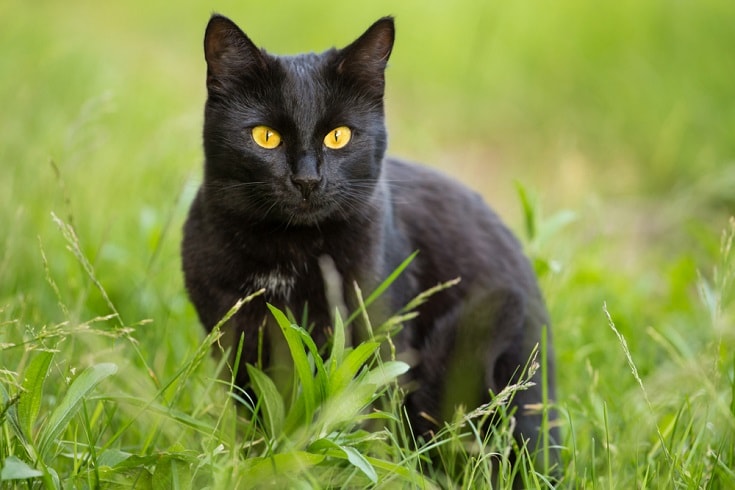
3. Limited Access to Easy Prey
Feeding tables and birdbaths are beneficial for wild birds because they provide a regular source of food and somewhere to sit and bathe. They can also be beneficial to your cat because they provide a guaranteed spot where birds are going to hang out and where they aren’t necessarily paying attention.
Similarly, feeders may attract other animals, such as mice that eat the remnants of the food on the floor around the base of the feeder. Even if you keep the bird food in a shed or garage, there is a reasonable chance that the mice have found it and your cat has worked out where they are heading.
Put feeders out of the reach of cats, and use baths that are not easy for cats to get on, to protect little animals from feline hunters.
4. More Playtime
No matter how often and how much you play, your cat may still head out and feast on local wildlife. But if your cat has started bringing in a lot of dead animals, it could be that they’re catching mice and other animals simply as a means of entertainment. Even if this isn’t the case, if you play with your cat more, it can sate their feline desire to get out and chase things.
Interactive toys, like fishing rods with pretend birds, are especially appealing to hunter cats. The movement of the bird mimics the erratic movement of a wild animal, and since the toy is usually plastered in catnip, it will appeal to your pet’s senses.
Throwing a small ball around or anything that makes that fun ringing or crunching sound may be enough to keep your cat occupied.
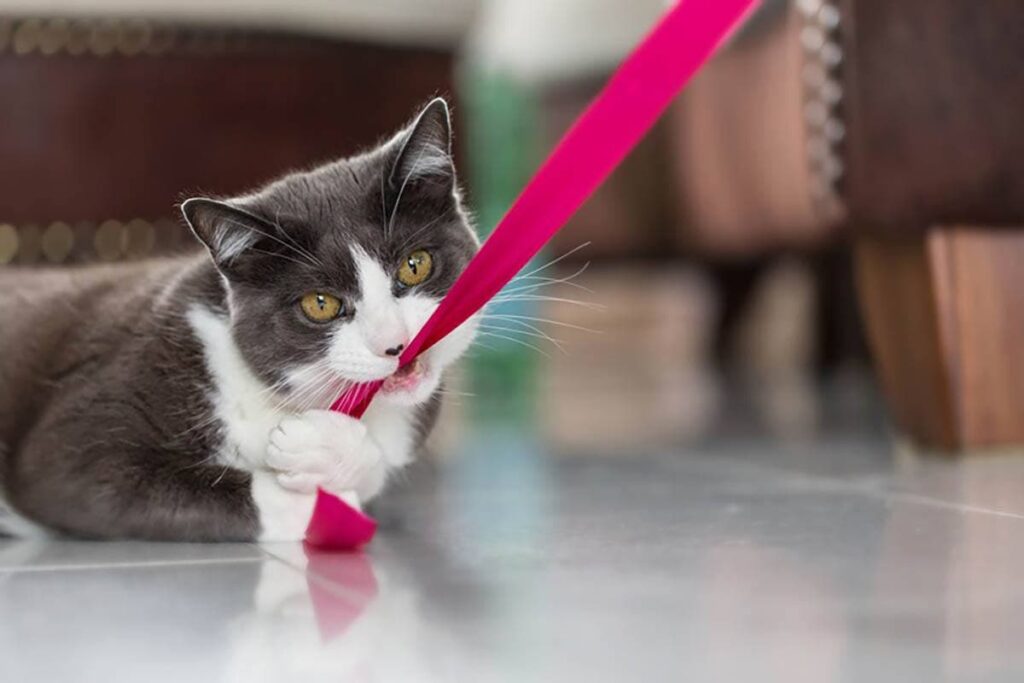
5. Training
This particular option may fall under the heading of “hopeful but unlikely,” but you can train your cat to perform desirable actions and prevent them from performing undesirable ones.
Training your cat to stop bringing you dead gifts can be difficult, partly because you are attempting to stop your cat from doing something that is perfectly natural to them and is ingrained in their behavior. Cats are also quite independent.
When your feline friend brings you a dead mouse, try and ignore them completely. When instead they come home empty handed, give them a catnip-scented toy to play with or some particularly tasty treats. They may realize they get a reward after returning home, instead of connecting the dots with the absence of prey.
Alternatively, spend time with your cat outside and sabotage their hunting attempts. Reward them with treats when they, or you in reality, release the rodent back into the wild, hopefully unharmed. Or, if you see them stalking, try and distract them with treats which may prove quite challenging, or simply pick them up if they allow and move them further away from potential prey, again rewarding their calmness.
Allowing your cat access to a secure catio instead is another way to minimize their hunting effects on local wildlife.
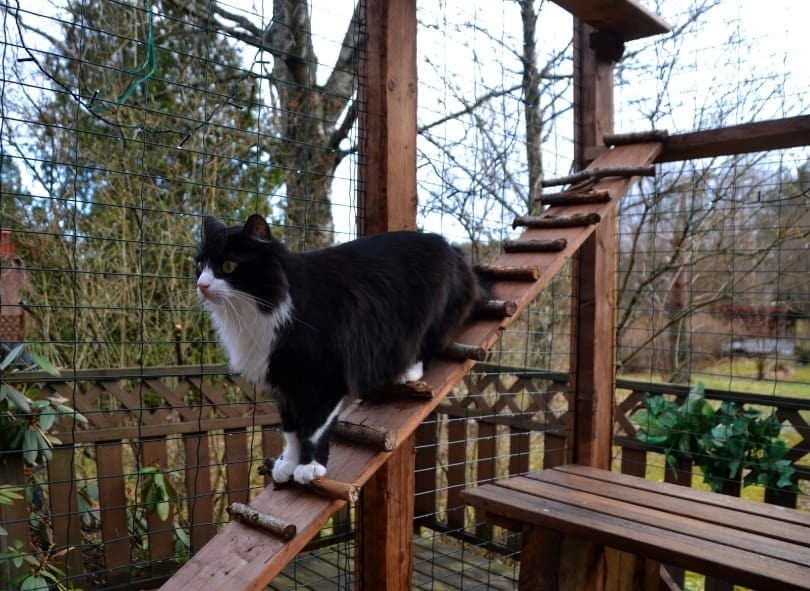

Why Does My Cat Keep Bringing Me Dead Animals?
Before you determine the best way to stop your cat from bringing you dead mice, you should determine why they partake in this interesting habit. Nobody really knows what goes through a cat’s mind, but possible reasons for bringing in dead mice include:
- The Thrill of the Hunt: Cats observe, stalk, pounce, and kill prey in the wild. They are instinctive hunters. Even though the closest activity your housecat has to hunting is to find their food bowl under the kitchen unit, it is still an instinctive reaction. This is evident in kittens that have never been out of the house but still twitch as they watch birds and other potential prey out of the window. Effectively, your cat might be bringing you dead animals because they can’t help it; it’s instinctual.
- Safety: If your cat is a natural hunter and enjoys eating the food that they catch, they may simply be looking for the safest place to eat their quarry. If you find prey near the back doorstep or elsewhere around the garden, it could be that your cat is bringing their catch back to a spot where they know they can safely eat it without losing it.
- Teaching: If your cat is a queen that recently had kittens, she may bring mice back home as a way to teach her kittens to catch it. They will not see their mother catch it in the wild, but by playing with it, they will learn important hunting skills.
- Anecdotal Gifting: While your cat may not see you as a hunter, they may see you as a provider because you can make food appear in their bowl. You also give them love and attention when they want it and meet all of your cat’s other requirements. The dead mouse at the door could be your cat’s way of showing you just how grateful they are for your efforts. After all, they went to the effort of stalking and hunting that mouse!
Neighbor’s Cat Leaving Dead Animals
Your neighbor’s cat has the same possible motivations for bringing you dead animals. If you have little to do with the cat, it is likely that your doorstep is simply a convenient location and free from would-be food thieves.
If you feed your neighbor’s cat, they could be repaying a kindness, and if you have ever let them inside, they may find your yard or house a safe place to enjoy their dinner.
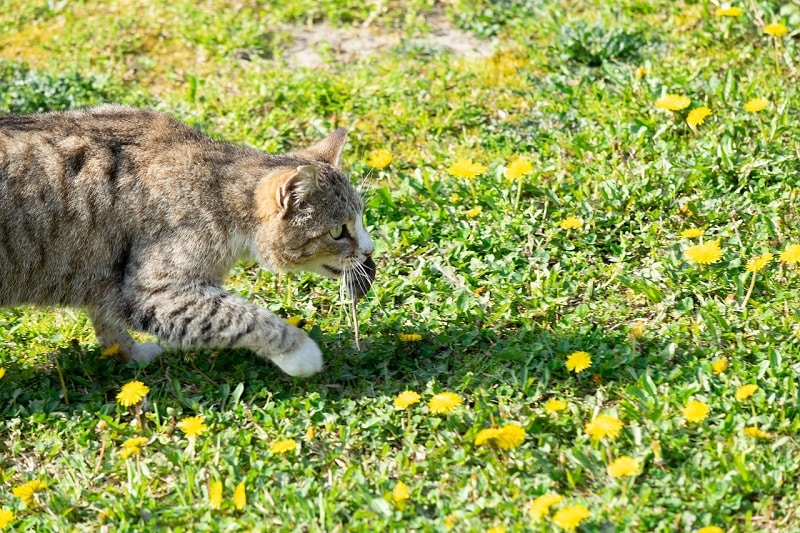
Stray Cat Leaving Dead Animals
A stray cat is leaving food on your doorstep for one of these listed reasons. Stray cats tend to be more protective over food and more likely to eat the small animals that they do hunt down. Safety and convenience, therefore, are the most likely reasons. If they are leaving the catch, they probably got started and didn’t get the chance to eat it.

Conclusion
Cats are exceptional hunters. They especially excel at watching, stalking, preying, and stealthily leaping on their quarry. They will hunt mice, small birds, and even frogs and butterflies. They may bring some of these animals to your home where it’s safe enough for them to eat in peace, without being disturbed or attacked by another predator, and it can be difficult to convince them to stop, so try these techniques.
Featured Image Credit: B_kowsky, Pixabay
